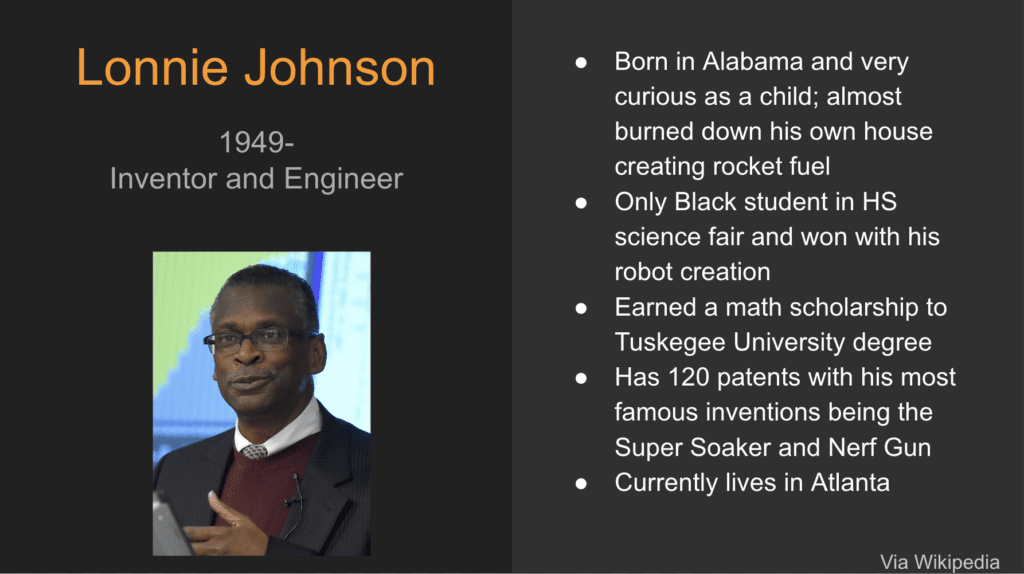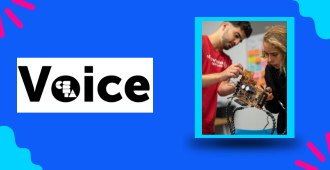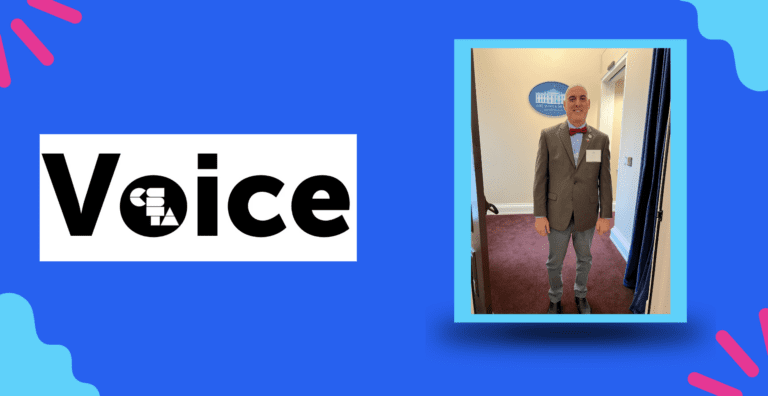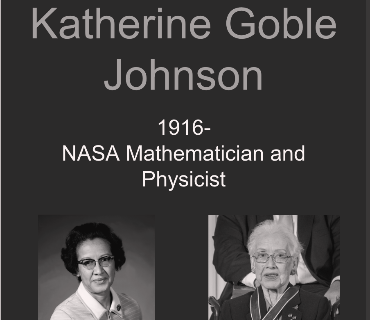
With Black History Month upon us, I would love for more computer science educators to approach this month and every month with a focused mindset on the triumphs and achievements of Black Americans in the United States within computing and STEM fields.
Full Story
With Black History Month upon us, I would love for more computer science educators to approach this month and every month with a focused mindset on the triumphs and achievements of Black Americans in the United States within computing and STEM fields. There is profound power found in recognizing, affirming, and respecting diverse identities in our classroom spaces daily, especially Black identities. When we do this we not only do directly affirm the Black identities of some of our students but also provide space, understanding, and respect for Black identities not represented in our homogeneous classrooms.
Today with the increasing diversity of our student populations, it is imperative for computer science educators to provide insight, praise, and illuminate more Black individuals and their continued contributions to computing and STEM. Our decisions to actively decenter whiteness in our classroom curriculum is imperative to our helping to develop a computing field that is accessible and includes more diverse voices in positions of power and influence. Our ability as computer science educators to shine the light on Black Americans during Black History Month should not be performative but actively serve as a powerful way for us to decenter whiteness in our class spaces, our own lives, and minimize it in the lives of our students as well.
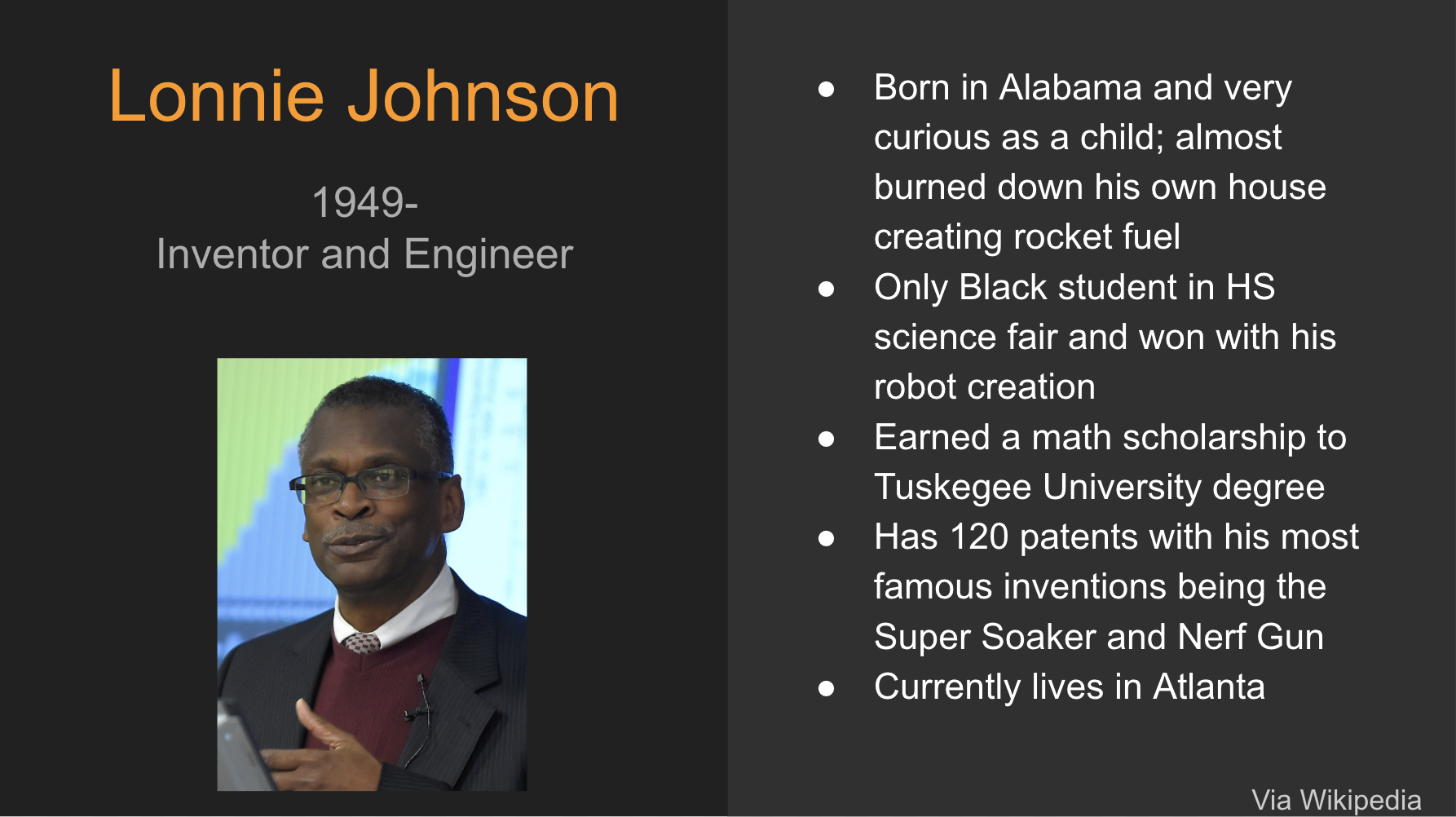 Last year, I made an intentional choice, with the classroom teachers blessing, in the HS classroom that I was supporting to dedicate the beginning portion of class to learn about Black Americans who have made contributions in computing and STEM during the month of February. The slides I created included biographical information as well as a video of their accomplishments and achievements in computing and/or STEM fields. They were asked to read over the information provided, research and find additional tidbits of information about the person of the day, then write a short reflection. After a week, my students looked forward to our Black History moment, intrigued by what unsung Black Americans’ contribution to computing or STEM in the United States. They were amazed this information was not available to them before and appreciated the public display of the accomplishments of Black Americans in computing and STEM. The power of having a classroom of all Black HS students empowered and enriched by the history and accomplishments of individuals who looked like them in computing and STEM was tremendous. This small addition to our classroom environment created a sense of joy and pride that proved beneficial for my students during Black History Month last year and helped foster some additional confidence for them as they moved through our AP CSP course last year.
Last year, I made an intentional choice, with the classroom teachers blessing, in the HS classroom that I was supporting to dedicate the beginning portion of class to learn about Black Americans who have made contributions in computing and STEM during the month of February. The slides I created included biographical information as well as a video of their accomplishments and achievements in computing and/or STEM fields. They were asked to read over the information provided, research and find additional tidbits of information about the person of the day, then write a short reflection. After a week, my students looked forward to our Black History moment, intrigued by what unsung Black Americans’ contribution to computing or STEM in the United States. They were amazed this information was not available to them before and appreciated the public display of the accomplishments of Black Americans in computing and STEM. The power of having a classroom of all Black HS students empowered and enriched by the history and accomplishments of individuals who looked like them in computing and STEM was tremendous. This small addition to our classroom environment created a sense of joy and pride that proved beneficial for my students during Black History Month last year and helped foster some additional confidence for them as they moved through our AP CSP course last year.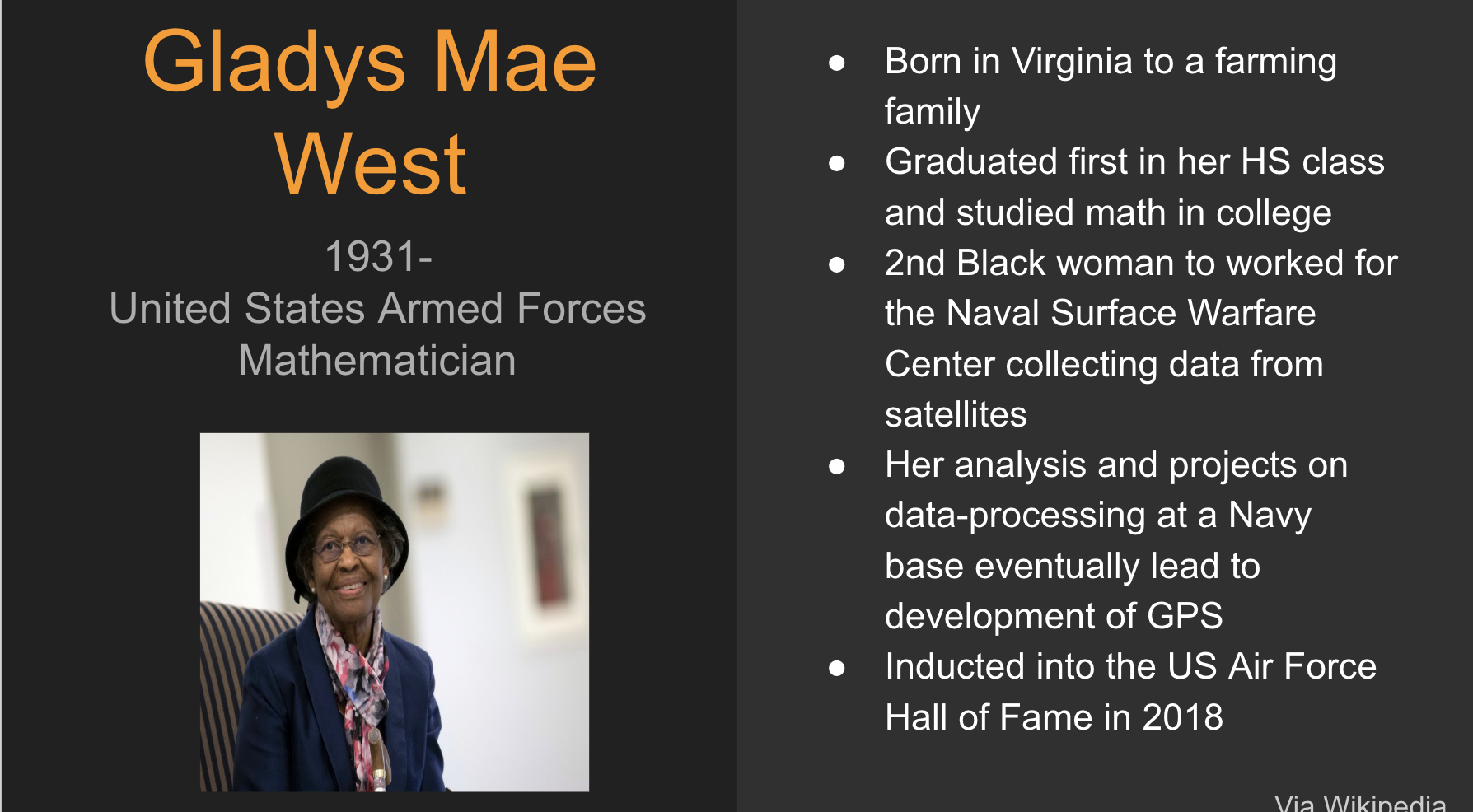 Educators should be encouraged to teach about lesser-known Black Americans who were first in their field or whose visionary and innovative ideas impacted many. Educators must make a concerted effort to include the rich, deep, and impressive history of Black Americans this month and also every month of the school year. Most students have heard about Martin Luther King Jr, Rosa Parks, or because of the recent movie Hidden Figures, even Katherine Johnson. What about highlighting the successful work of Gladys Mae West, Mark Dean, Dr. Shirley Jackson, or Jerry Lawson this month? Additionally, we should and also encourage our students to look to modern Black Americans who are making history and great strides in computer and STEM fields now. The admirable individuals listed below examples of modern trailblazers in computing and STEM that are helping make our field more accessible to marginalized groups that are worth studying, learning from and hearing speak. I strongly encourage you to share more information about some of them with your students this Black History Month.
Educators should be encouraged to teach about lesser-known Black Americans who were first in their field or whose visionary and innovative ideas impacted many. Educators must make a concerted effort to include the rich, deep, and impressive history of Black Americans this month and also every month of the school year. Most students have heard about Martin Luther King Jr, Rosa Parks, or because of the recent movie Hidden Figures, even Katherine Johnson. What about highlighting the successful work of Gladys Mae West, Mark Dean, Dr. Shirley Jackson, or Jerry Lawson this month? Additionally, we should and also encourage our students to look to modern Black Americans who are making history and great strides in computer and STEM fields now. The admirable individuals listed below examples of modern trailblazers in computing and STEM that are helping make our field more accessible to marginalized groups that are worth studying, learning from and hearing speak. I strongly encourage you to share more information about some of them with your students this Black History Month. Dr. Brandeis Marshall
Dr. Kamau Bobb
Dr. Ruha Benjamin
Dr. Allison Scott
BȧriÌ A. Williams
Shireen Mitchell
Dr. Ayanna Howard
Dr. Charles Isbell
Dr. Jeff Forbes
Dr. Jamika Burge
Arlan Hamilton
Paul Judge
Brenda Darden Wilkinson
Dr. Nicki Washington
Dr. Kamau Bobb
Dr. Ruha Benjamin
Dr. Allison Scott
BȧriÌ A. Williams
Shireen Mitchell
Dr. Ayanna Howard
Dr. Charles Isbell
Dr. Jeff Forbes
Dr. Jamika Burge
Arlan Hamilton
Paul Judge
Brenda Darden Wilkinson
Dr. Nicki Washington
The more work we do as computer science educators to normalize and consistently publicize the accomplishments and achievements of Black Americans in computing and STEM during this month and throughout the year, the more we can directly empower our Black students in these fields while also enlightening for our non-Black students. So I ask, what are you doing during this Black History Month and throughout the school year to share and learn about the triumphs, joy, and numerous accomplishments of Black Americans in computing? Our students are watching us and following our lead.
About the Author
Shana V. White, an inaugural CSTA Equity Fellow, is in her fifteenth year of education, teaching currently at a middle school in metro Atlanta. She has a B.S. in health and exercise science from Wake Forest University, a master’s degree in physical education from Winthrop University, and an Ed.S. in Instructional Technology from Kennesaw State University. She is a Georgia certified K-12 Health/Physical Education Teacher as well as a certified K-12 Computer Science Teacher. She believes in purposeful disruption of the status quo in schools and is passionate about equity, race, culturally relevant pedagogy, inclusion, STEM and computer science instruction at the K-12 level. She has received a number of accolades including 2019 Georgia Tech Diversity and Inclusion Fellowship, 2017 Outstanding Ed.S Scholar in the Bagwell College of Education at Kennesaw State University for Instructional Technology, ASCD 2017 Emerging Leader, and 2016 PBS Lead Digital Innovator for Georgia.

